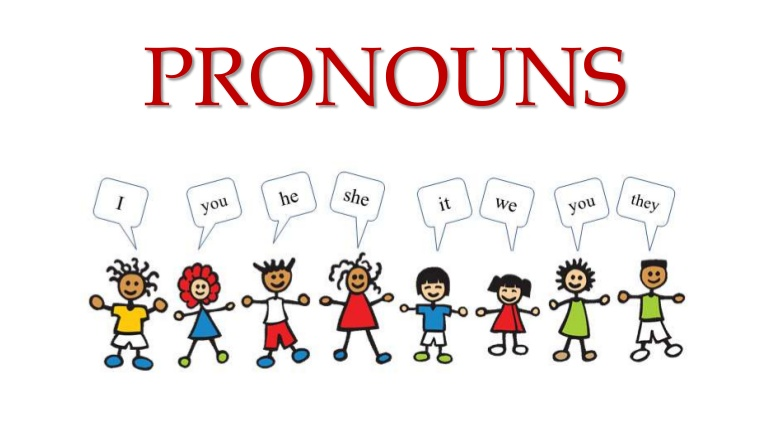Pronouns
For beginners learning English, one of the first basic foundational knowledge is personal pronouns. Having a solid foundation will make the process of self-studying English much easier. Let EnglishTopVN help you do this
1. Concepts
Pronouns also known as a pronoun - a word used to represent a noun that refers to a person, thing, thing or event mentioned in the previous sentence or sentences to avoid unnecessary repetition of words.

Purpose :
- Replaces nouns or noun phrases
Avoid repeating the same word multiple times in sentences
For example:
- My father is a teacher.
- My father is tall
- My father has a black hair
➢ When describing our father, if we use the word "My father" over and over again, it will make the sentence quite boring and create a feeling of fatigue for the reader, right?
2. Classification
|
|
Singular |
Many |
|
The person speaking in the conversation (also called 1st Person) |
I |
we |
|
The person listening in the conversation (also called Second Person) |
you |
you |
|
The person who is not participating in the conversation, just being addressed (also called Third Person) |
he |
they |
3. Function
✅ Summary:
-
Personal pronouns can stand in the following positions and play the following roles in a sentence: subject, object, after prepositions.
- Each personal pronoun has two forms: subject form and object form.
➢ As we learned above, a personal pronoun is a word used to represent a noun or a noun phrase.
Therefore, personal pronouns can stand in the positions that nouns or noun phrases can stand in the sentence, specifically:
- Subject
- object
- Comes after a preposition (in a prepositional phrase)
➢ But personal pronouns have one difference compared to nouns, that is, personal pronouns have 2 different forms, depending on their position in the sentence, while nouns have only 1 form.
Noun examples:
- Subject position: The student is good at math. = This student is good at math.
- Object position: I like the student. = I like this student.
- Comes after prepositions: I went to the park with the student. = I went to the park with this student.
Examples of personal pronouns:
- Subject position: He is good at math.
- Object position: I like him.
- Comes after prepositions: I went to the park with him.

The student is good at math. I like him. I went to the park with him.
➢ Thus, personal pronouns have two forms: one form is used when the pronoun is in the subject position, the other form is used when the pronoun is in the object position or comes after the preposition.
Below is a table summarizing and comparing two forms of personal pronouns:
|
Subject |
Object & After Preposition |
|
I |
me |
|
you |
you |
|
he |
him |
|
she |
her |
|
it |
it |
|
we |
us |
|
you |
you |
|
they |
them |
4. Other types of pronouns related to personal pronouns
|
Personal pronouns refer to the subject |
Object pronouns |
reflexive pronouns |
Possessive pronoun |
Positive adjectives |
|
I |
me |
myself |
mine |
my |
|
you |
you |
yourself |
yours |
your |
|
he |
him |
himself |
his |
his |
|
she |
her |
herself |
hers |
her |
|
it |
it |
itself |
(Not available) |
its |
|
we |
us |
ourselves |
ours |
our |
|
you |
you |
yourselves |
yours |
your |
|
they |
them |
themselves |
theirs |
their |

